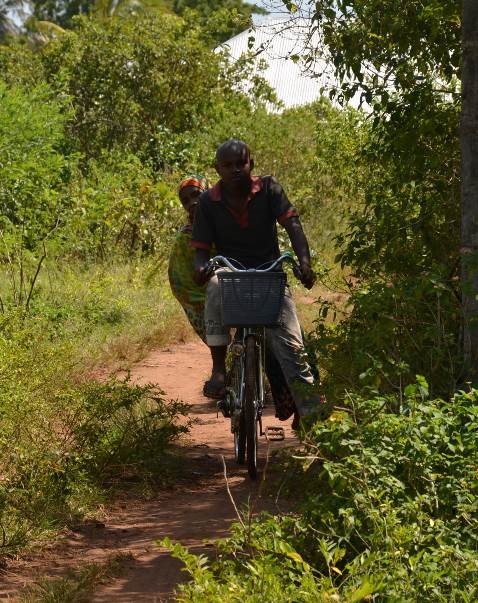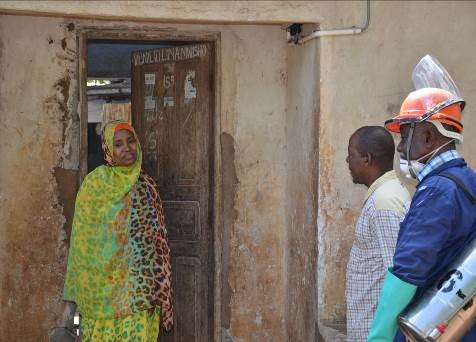Villagers credit IRS for reduction of malaria
On the main island of the Zanzibar archipelago, Unjuga, in the village of Dunga Kiembeni, Ashura Abdalla rides home from the market on the back of her 17-year-old son Rajab Ali’s bicycle. Ashura remembers when he wasn’t always healthy.
“In 2000, my son got malaria at one years old,” Ashura said. “He had fevers and convulsions, vomiting and diarrhea. His hands and mouth were paralyzed. I thought he was going to die.”
Ashura has suffered from malaria herself and has cared for several of her seven children who have also been sick from the disease. “It’s very difficult. Treatment cost 10,000 shillings (approximately USD5 for treatment),” Ashura said. “Our income is 2,000 shillings per day. Sometimes I had to borrow money from relatives to send my children to the hospital.”
The poor are most vulnerable to the disease. The cost of treatment prevents some families from getting the care they need. They often go to treatment facilities later than they should or rely on local treatments that are not effective. The loss of income from not working while sick or caring for someone impacts the poor even further.

Ashura Abdalla and her family no longer suffer from malaria thanks to the IRS provided by PMI. Photos: Laura McCarty
In 2006, the U.S. President’s Malaria Initiative (PMI) began providing the Government of Zanzibar assistance in indoor residual spraying (IRS) to kill the mosquitoes that transmit the disease. IRS plays a critical role in the fight against malaria, by spraying insecticide on the walls, ceilings, and other indoor resting places of mosquitoes that transmit malaria. Since PMI began spraying in 2006, the incidence of malaria has reduced from an average annual rate of 35% to less than 1%.
The local village school master Suleimann Iddrisa, said, “Years ago, so many, many children got sick from malaria. Even the teachers and I would get sick. Since the IRS campaigns started, we haven’t had a problem with malaria. The children can come to school. They are healthy and can learn without being tired and sick from the disease. The spraying has meant so much.”
“Thanks to the spraying, my children are healthy,” said Ashura. “Now instead of me caring for my son, he can carry me on his bicycle.”
This story was taken from www.africairs.net

